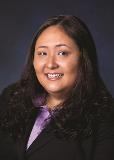The following article, written by Ai Mukai, MD, FAAPMR, was originally featured in the February issue of The Physiatrist, your AAPM&R member newsletter mailed to you monthly.
As we go into 2020, the plenary talk by Bonnie St. John at the Annual Assembly made me think more deeply about the topic of burnout, wellness, and resilience. Being involved in resident education, the topics of burnout and wellness come up frequently. Residency programs across the country try to address this issue by limiting work hours, reducing non-educational "scut-work," and providing opportunities for wellness retreats/events and promoting social interactions within the programs.

But what about us practicing physicians? Who is looking at our work hours, "scut-work" (i.e., peer-to-peer phone calls, paperwork, appeals of denials, etc.) and wellness? I have discussed the topic of burnout in previous editorials -- and I can identify the frustration and the feeling of loss of control in some of the posts on the PhyzForum. We have to adapt to changes that are forced upon us by external factors all the time -- whether it be a new regulation or mandate from the government, insurance payors or hospital administrators.
We worry about the security of our jobs and being replaced by mid-levels, by those who do not understand the difference in training and knowledge base between physicians and non-physicians. We worry about our income stream decreasing as "reimbursement" is cut every year. We are yelled at by angry patients and family members who do not want to hear our professional medical opinion. Frequently, we have to deliver bad news that devastates a family. All of the above added to the burden of maintaining and nurturing your family relationships and schedule can be enough to cause serious burnout.
When I first started practicing, I would notice those feelings of stress and burnout every few months and take a vacation or a short break 2-3 times a year. Recently, I have been noticing that those breaks were not sustaining me and that although I enjoy vacations, I frequently do not feel rejuvenated and ready to work when I return. When I heard about micro-resilience, this all started to make sense to me. I realized that I was experiencing daily stress and bad mood and I was having a harder time "recovering" from that triggering event, be it a bad interaction with a patient, a negative patient review, a denial notice from the insurance company, or a difficult conversation with staff. I felt like some of my patients were sucking my energy and I would frequently feel fatigued and worn out by the end of clinic, only to repeat again in the afternoon and the next day. Bonnie St. John used the analogy of falling during a ski run, and how fast you are able to get back up determining ultimately how you perform in the race. I was taking longer and longer to get up and losing my motivation and energy.
I wish I could tell you that I have found some secret formula for combating this or improving my micro-resilience. I am certainly still a work in progress; however, being aware of my own mood and reactions to situations have helped to at least frame my perspective.
My patient gave me an aromatherapy sniffer that I can carry around. If I am driving between locations, I listen to my favorite music or listen to an audiobook. I look at the home screen on my phone to see a photo of my children and also have them pinned to my desk. I have also started examining what consumes my time and making choices about keeping things that mean a lot to me or make me feel happy and letting go of things that are not positive. I have always recognized that true friends are rare and I have many acquaintances but looking back at my communication with people I can identify the ones that only text or call when they want something. I also had people in my life that always seemed to instigate drama. Those people now no longer get my immediate response or attention. I have started "silencing" my phone after a certain time. I have decreased my social media use and also have come to recognize the "façade of perfection or happiness" that is created in the virtual world by Instagramers and social media posters.
I decided to find small things that bring me joy. For example, I have started playing the piano again. I am taking an online photography course. I work out with a personal trainer every week. I'm reading books about topics that interest me -- like female leadership and negotiation tactics, how to raise healthy children, etc. I take weekly Sunday morning walks with my friend who is also a physician so we can vent and get exercise at the same time. I would love to know what you all have found to be helpful in your lives! I'm grateful to the Academy for inviting such inspiring speakers and allowing opportunities like the PhyzTalks to hear from our amazing members!
Learn more about how you can combat burnout with our Physician Burnout and Wellness Toolkit.
Do you have a story/perspective that you want to share with the PM&R community? Submit it to submissions@aapmr.org!